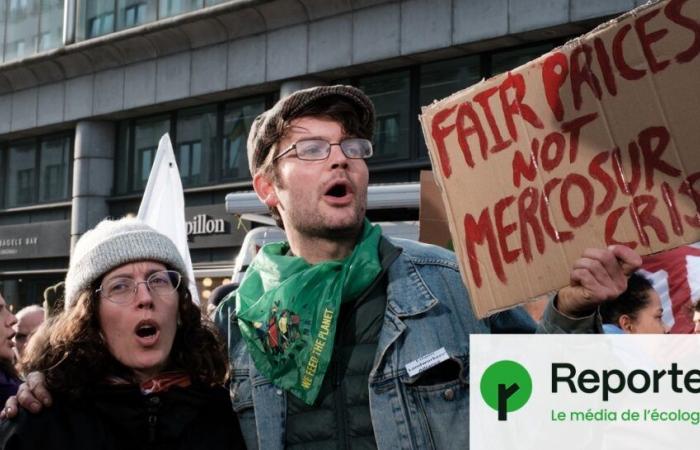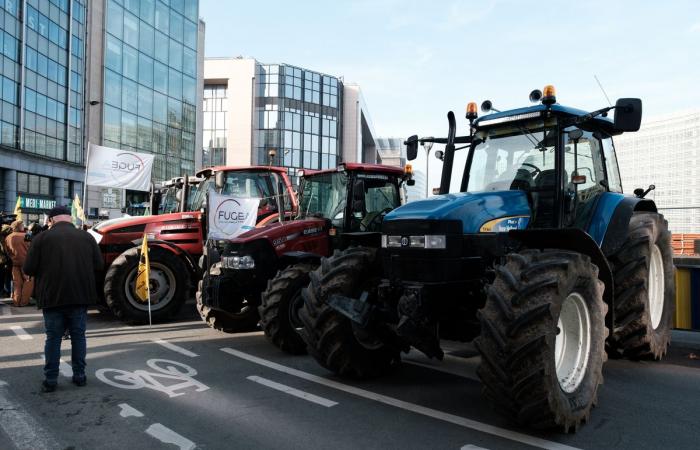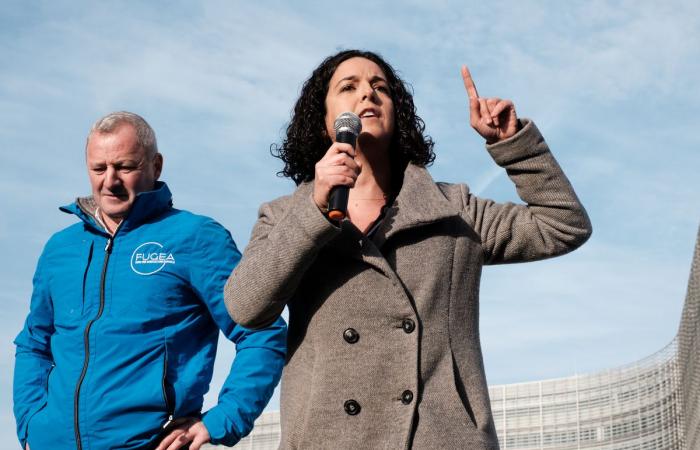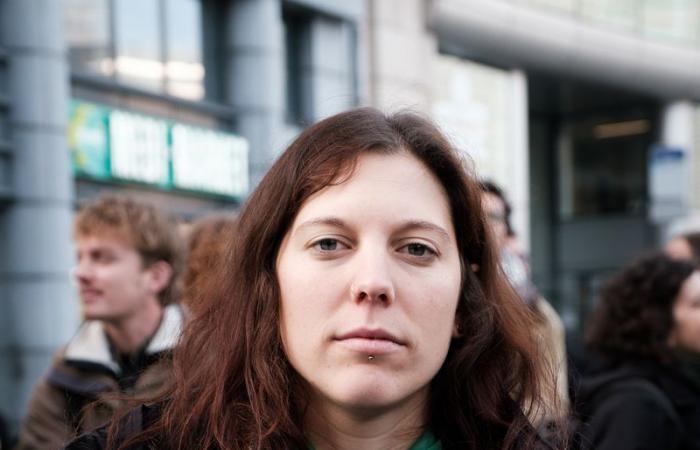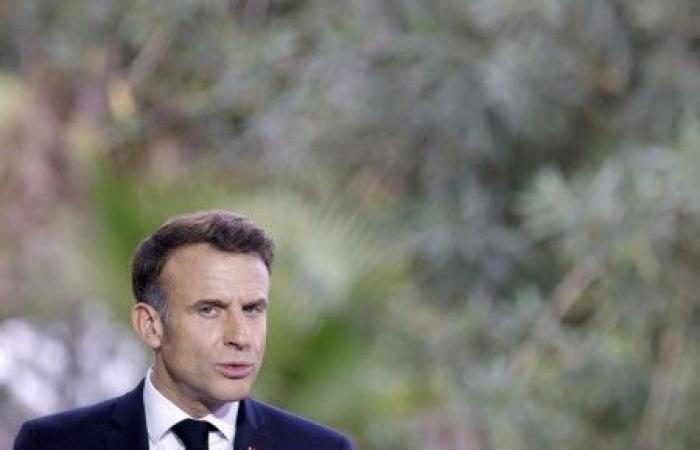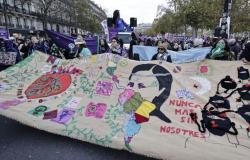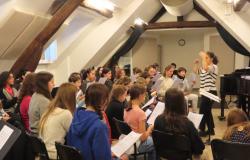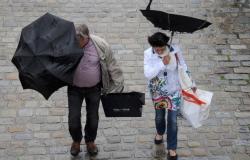Brussels (Belgium), report
The embers of agricultural anger are heating up under the sunny skies of Brussels. This Wednesday, November 13, at the end of the morning, the tractors rumble on the Schuman roundabout. Around a hundred farmers and their supporters, from several European countries, are speaking out against the European Commission. « Stop UE-Mercosur ! » they thunder. A mannequin dressed as a farmer hangs by a rope from a rear-view mirror. A sign hangs on the bumper: « L’agriculture ! My children dream of it, I'm dying of it ! » With her fist raised, Sylvie Colas, a poultry breeder in the Gers, sums up the general anxiety: « This agreement is a blow to small breeders and small farms. »
This mobilization, organized by Fugea, a Belgian union for the defense of peasant agriculture, and the European Coordination Via Campesina (ECVC), follows the intensification of negotiations on the free trade agreement between the European Union and the Mercosur countries (Argentina, Brazil, Paraguay, Uruguay and Bolivia). The European Commission, according to several sources, would like to complete it during the G20 on November 18 and 19 in Brazil. The Politico media evokes a hoped-for outcome at the beginning of December. This prospect revives agricultural anger, less than a year after peasant mobilizations throughout Europe.
« We wonder if the Commission is still listening to farmers »confides Hugues Falys, spokesperson for Fugea, wearing a blue vest. In Hainaut, he raises around a hundred Charolais cows and grows organic cereals. « They want to close this agreement without seeing the consequences for us and the environment. To avoid the fire, there is only one solution: stop these negotiations ! »
Fugea and Stop flags EU-Mercosur before the European Commission, November 13, 2024.
© Sophie Hugon / Reporterre
Farmers accuse free trade agreement of introducing competition deemed « unfair ». It would facilitate the importation of beef and poultry from Mercosur countries, from industrial farms, produced at low cost and with more lax environmental and health standards. The agreement, nicknamed by its opponents « cars for cows » (« cars versus cows »), would notably allow the importation of tens of thousands of tonnes of beef and poultry, produced in giant feedlots, where cows are confined to reach their slaughter weight as quickly as possible.
« Here we follow strict standardsexplains Hugues Falys, between two television interviews. We respect them, because it is a demand from society and consumers. But how can we fight against productions that do not have these constraints? ? Our colleagues are on the verge of collapse. »
Many tractors were parked in front of the European Commission.
© Sophie Hugon / Reporterre
« They will kill us »
The agreement with Mercosur touches another sensitive nerve: the ecological question. This project risks worsening the massive deforestation caused by industrial livestock farming in the Amazon and the Cerrado. Since the start of negotiations in 1999, deforestation in this region has progressed to affect an area equivalent to that of the Iberian Peninsula. « We are asked to reduce our emissions, and there, theUE supports imports that destroy forestsprotests Sylvie Colas. It's incomprehensible. »
European corn producers also find themselves in competition with South American crops which use pesticides banned in Europe for a long time, such as atrazine. « They want to poison us with toxic products banned here for good reasonsreacts Manon Aubry, MEP La France insoumise (LFI). They do all this behind the backs of farmers and behind the backs of the people. »
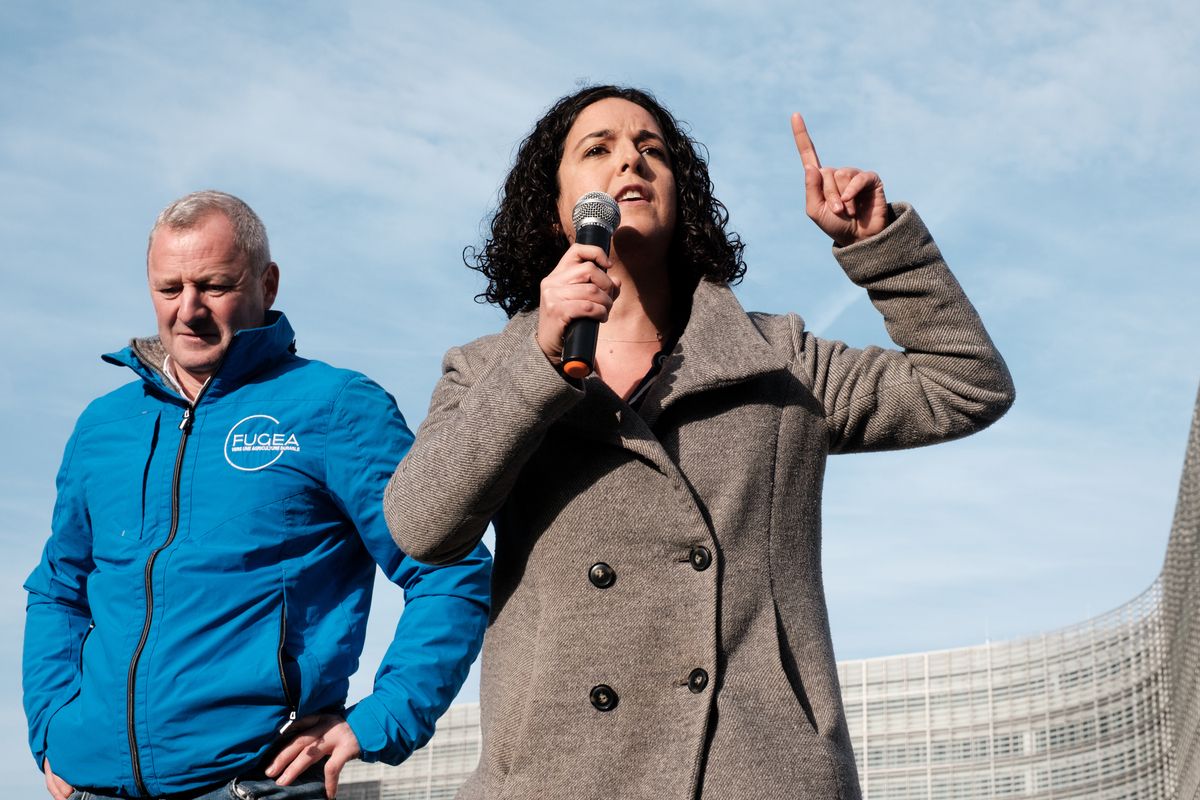
Among the political figures present, Manon Aubry, La France insoumise MEP (LFI).
© Sophie Hugon / Reporterre
For European farmers, this mobilization is a new cry of warning, after a year marked by health crises, climatic calamities and financial difficulties. « This year was already not happy and many of us were forced to sell our products at a losssighs Pierre Maison, milk producer in Haute-Savoie, green scarf from Via Campesina around his neck. Add this deal to it, and they're going to kill us. »
For Manon Aubry, the Commission is taking a huge political risk by pushing for this agreement: « To go to the end would be social, agricultural and health madness. An intense phase of mobilization begins to convince each elected official one by one to position themselves against this text, because they are only afraid of one thing: that farmers mobilize, that they block Brussels, Paris and the others European capitals. »
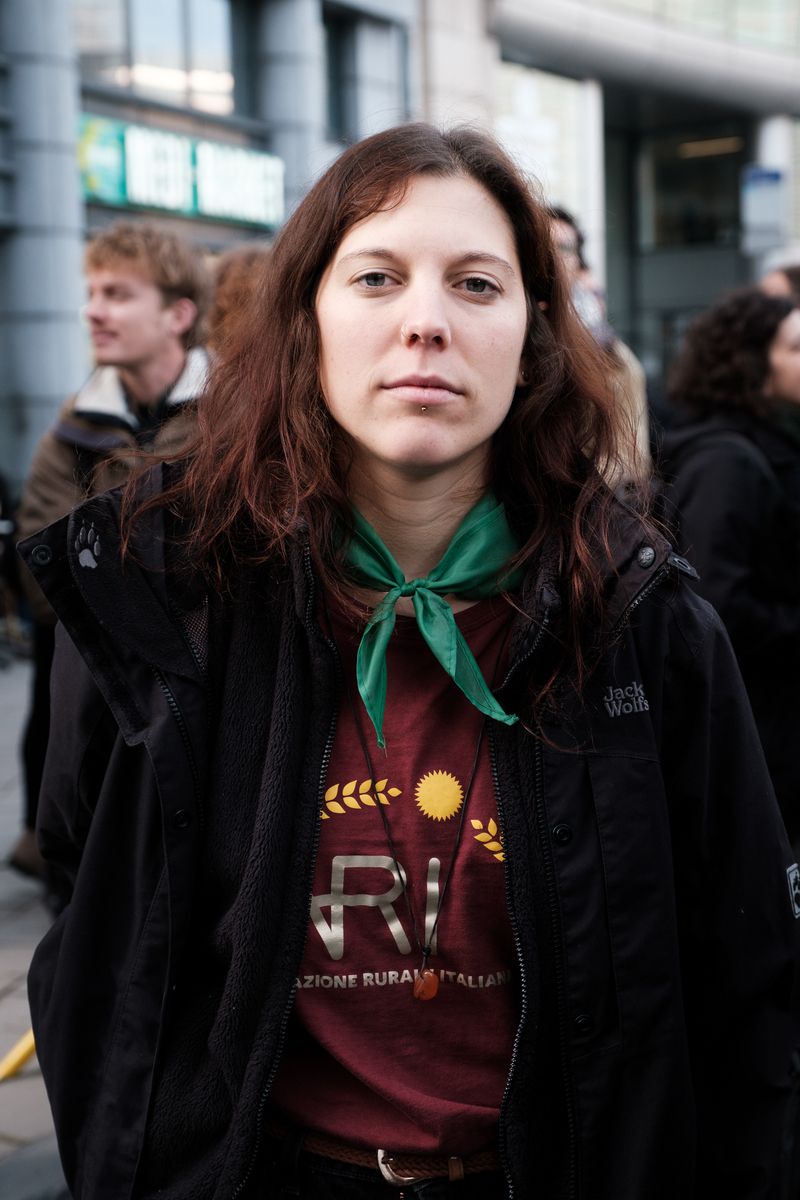
Paola Laini, member of the Italian Rural Association: “ We are at a turning point. »
© Sophie Hugon / Reporterre
The demonstrators are not ready to compromise in the face of the promises of financial compensation that certain political leaders are putting forward to appease farmers. « We don't want compensation for damage that could be avoidedsays Hugues Falys. We want fair prices, not to be the adjustment variables of an agreement that threatens our farms. »
In the crowd, a slogan is repeated: « We see you, we won't let you go ! » The message is addressed to MEPs, the Commission and European capitals. You only need a minimum of « four countries [pour] make a difference and block this agreement in the Councilexplains Saskia Bricmont, Belgian environmentalist MEP. Emmanuel Macron positions himself very clearly against this treaty, but beyond the words, he did not take the initiative to constitute this blocking minority ».
With the demonstrations looming from this weekend in France, the agricultural mobilization seems ready to hold, while awaiting a concrete response from European leaders. Paola Laini, a member of the Italian Rural Association and a seasonal agricultural worker on Lake Como in northern Italy, warns: « We are at a turning point. If the new commission agents do not guarantee us fair prices and the end of the free trade era, we will come back. Even more numerous. »
legend

